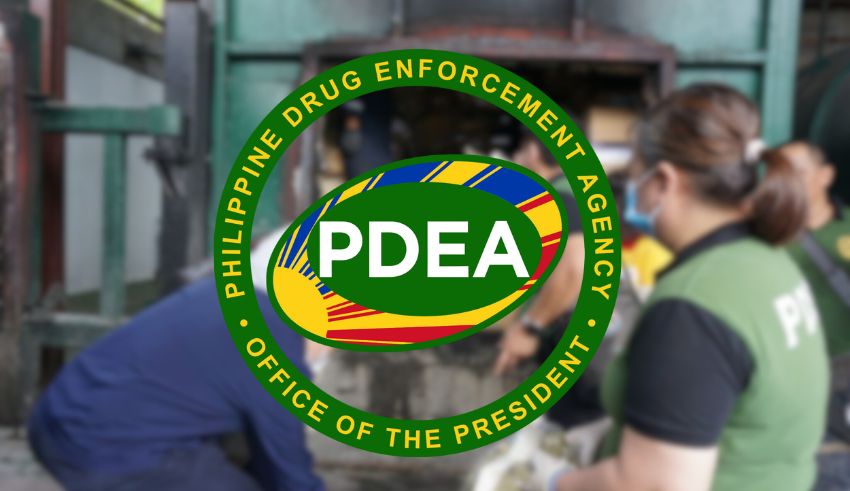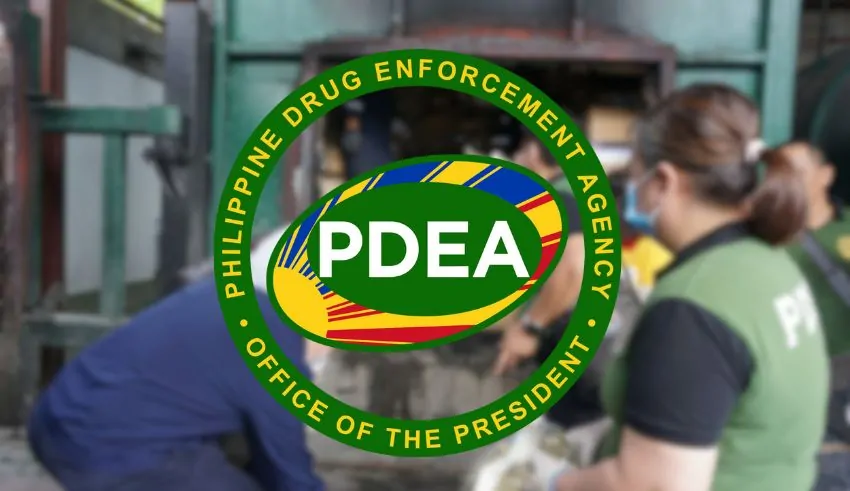

(C) PDEA
Significantly, the Philippine Drug Enforcement Agency (PDEA) and the Dangerous Drugs Board (DDB) have shown openness to lowering marijuana from its present rank as one of the most hazardous narcotics. In response to advice from the World Health Organisation (WHO) and the United Nations (UN), Senator Ronald “Bato” Dela Rosa recently revealed that both agencies are ready to review the categorisation of cannabis. Legal and legislative challenges, which are likely to postpone any official change, will thus cause this change to take place gradually rather than quickly.
Raised during the Senate’s discussions on the proposed 2025 financing for PDEA, the suggestion emerged inside a larger debate over the agency’s involvement in public health campaigns and drug enforcement. The matter surfaced when Senator Robin Padilla asked PDEA about the timing of its attempts to reclassify marijuana in response to worldwide calls to review the drug’s harmful classification. His research highlighted the mounting calls for changes in marijuana laws in the Philippines, with many supporters anticipating the government would more closely follow suggestions for international drug policy.
Downgrading marijuana’s classification has been popular all around, especially in light of growing data proving its medical advantages. The WHO and UN both advised reclassifying cannabis in 2020, implying that the worldwide perspective on marijuana should be reevaluated particularly with relation to its medical usage. The DDB and PDEA had earlier promised to assess the matter in line with these international recommendations and reclassify the medicine should legal procedures let it.
Inquiring about this prior agreement, Senator Padilla asked when PDEA and DDB would formally begin the downgrading process. “The question is, DDB and PDEA promised us they would follow WHO and UN in terms of rescheduling cannabis, when we conducted a hearing regarding medical marijuana,” Padilla stated. The public is ready to know when the agencies will send official documentation to start the downgrading process by one level, he said. He also underlined the requirement of openness and clarity among the authorities regarding the timing of their action upon this promise.
Senator Dela Rosa, who sponsors PDEA’s budget in the Senate, responded that although the agency is entirely on board with the concept of lowering marijuana, it cannot proceed with the reclassification without legislative reform. Dela Rosa clarified that PDEA’s capacity to implement adjustments free from legislative action is limited by marijuana’s present prohibition under Republic Act No. 9165, sometimes known as the Comprehensive Dangerous Drugs Act of 2002.
PDEA does not present any issues. Although they are ready to do everything to downplay marijuana, we have to change the law, RA 9165, before we can act otherwise since marijuana was adopted in this statute as one of the illegal drugs. He then went on to say that under the present law, PDEA lacks the power to unilaterally reclassify marijuana without the required legislative amendment. The law as it is essentially legally limits the agencies.
Dela Rosa underlined that PDEA’s authority is limited in terms of changing the classification of banned drugs. It cannot be categorized without first eliminating marijuana from the annex of RA 9165 since it is clearly labeled as a harmful drug there. Therefore, any effort to lower the drug’s classification will need careful examination and legislative change of the legislation itself.
“There is a limit of power to reclassify that we need to remove first from the annex before it gets reclassified,” Dela Rosa said. Therefore, the present legal system prevents the intended reclassification of marijuana by acting as a barrier. The next action will be to get the required legislative changes as the agencies have shown a readiness to implement the change.
Dela Rosa stayed hopeful about the possibility of moving forward with the reclassification once the required actions are made, even though she admitted the legal obstacles. Once the amendment process starts, he reminded the Senate and the public that PDEA, together with the DDB, are totally dedicated to downgrading marijuana, thereby indicating a coordinated effort between these agencies and legislators. “But in terms of willingness and approval and cooperation, they are quite much ready to do everything,” he underlined.
Given public support for medicinal marijuana, specifically, this eagerness to cooperate suggests that PDEA and DDB are ready to match changes in international drug policy. Still, the road forward is not perfectly clear. Dela Rosa notes that legislators will have to thoroughly analyze the necessary legislative reform to remove marijuana from the illegal list. Therefore, the process of downgrading marijuana will probably take time since it will need serious thought and changes to the current laws controlling the approach of drug control.
It is not expected for Republic Act No. 9165 to be amended quickly. Given the intricacy of the legal system and the several players engaged in drug policy debates, it is probably a long and deliberate process. Lawmakers must answer issues raised in public health, law enforcement, and advocacy groups among other spheres. Legislators will also have to strike a balance between worries about medicinal marijuana’s recreational usage and effect on public health and possible advantages.
The government must also consider the social and financial ramifications of changes in marijuana laws. Advocates of downgrading marijuana contend that it would lower the stigma attached to the drug and improve access to medical cannabis for those who might benefit from it. Conversely, detractors could express worries about the wider social consequences of loosening drug laws, especially in a nation where illegal drug usage is still a major issue.
All those involved in the debate on marijuana reclassification will have to participate in an honest and open communication. Although the DDB and PDEA’s eagerness to assist the suggested downgrade is encouraging, legislative and legal obstacles need to be removed before any significant change can occur.
Beyond marijuana itself, this possible legislative change affects concerns of drug decriminalization, public health, and law enforcement, so having wider consequences. The choices and debates decided upon in the next months will shape the way the Philippines handles drug control going forward. For now, the nation stays at a crossroads with both possibilities and difficulties ahead as legislators, government agencies, and the public cooperate to define marijuana policy in the Philippines.
Nintendo has announced the new Switch 2 to stir the gaming world with some fabulous features. This console of the…
The 65-year-old Val Kilmer, versatile and magnetic actor famous for his works in Top Gun, Batman Forever, and The Doors,…
Yashasvi Jaiswal announced a major shift in cricket clubs when he left Mumbai Cricket Association to play for Goa domestic…
NASA astronaut Sunita Williams intends to return to India to talk to leaders at the Indian Space Research Organisation (ISRO).…
The 2024-25 CBA season in China was an historic 30th season for the league that was filled with exciting matches,…
China, stepping ahead of possible new US tariffs, has announced new trade plans from India to bring both countries closer…
This website uses cookies.
Read More